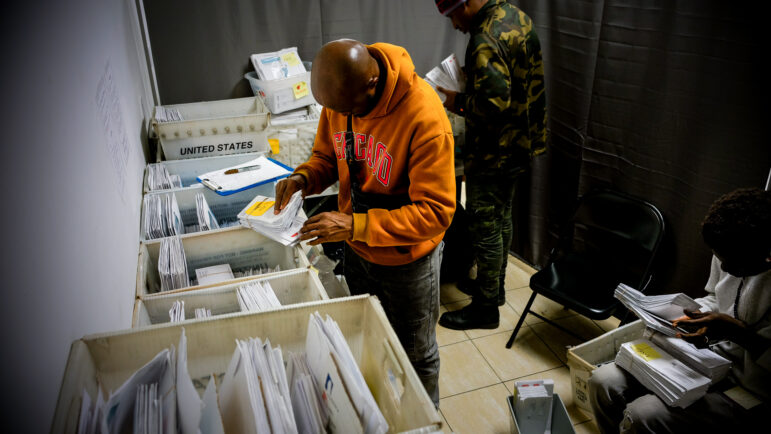When Wal-Mart was raided by federal agents in October, it was front page news. The chain was accused of employing undocumented workers, many of whom were underpaid by the cleaning companies used by the chain. But, around the same time, a smaller version of the same story was unfolding here in New York.
René Santos, 19, is also an immigrant worker. A former employee of Met Foods on Smith Street in Brooklyn, he says he spent 70-hour weeks cleaning the store and the machines used for waxing and polishing the floors. But when he showed up late one night this past October, he said, he was fired by his boss, contractor Julio Navarro, and denied three weeks of pay.
Santos is one of eight Mexican workers employed by Navarro who claim they were unpaid or unfairly fired. At least two of them joined a noisy protest outside Met Foods last week to demand restitution.
Like many of the city’s immigrant cleaning crews, Navarro’s employees were rotated between different stores across the city including Key Food, Associated Supermarket, C-Town, Bravo and Met Foods.
Met Foods manager John Ahn said he knew nothing about the alleged abuses before Saturday’s protest, and added that the store paid Navarro amply for the hours provided. “We didn’t fire those two guys,” said Ahn. “We made the contract with their boss.”
Navarro did not respond to calls seeking comment.
But the Fifth Avenue Committee, the Brooklyn nonprofit to whom Santos complained, says the situation isn’t entirely Navarro’s fault.
“I spoke with the contractor,” said Artemio Guerra, an organizer with the group. “[He said] he only gets $300 per week from the owners of these food stores to pay the workers. How can he pay them more then? It is the owners of these stores who need to be made responsible. It is a national problem.”
Just look at Wal-Mart. Since the raids, one group of immigrants has sued Wal-Mart accusing it of discrimination, failure to pay overtime and other violations. A second suit accuses the company of conspiring to cheat the janitors out of wages and failing to pay workers’ compensation and Social Security taxes.
Gristedes and Duane Reade have been hit with similar charges. The chains recently agreed to pay $3.25 million and $325,000, respectively, in back pay to delivery personnel hired through independent contractors.
Jim Williams, executive director of the National Employment Law Project, says these victories show a growing awareness of the ways big companies hide behind smaller firms. He hopes that awareness will lead to change. “Employers need to ensure that their contractors comply with the law,” he said. “They should monitor how many workers the contractor is giving them, how many hours they work and how much they earn.”
Only then will life improve for immigrant workers like Santos, typically stuck in low-wage jobs. He is now washing dishes full-time at a restaurant in Bay Ridge for $250 a week.








